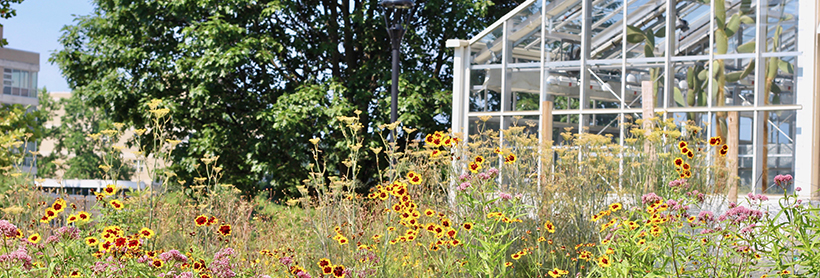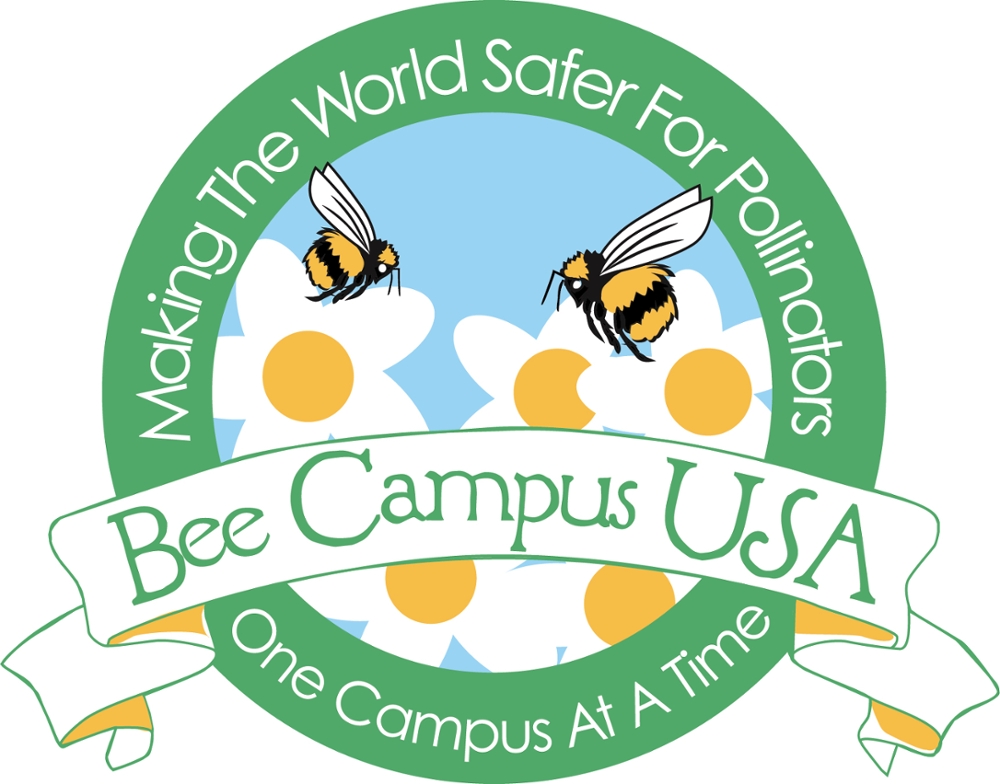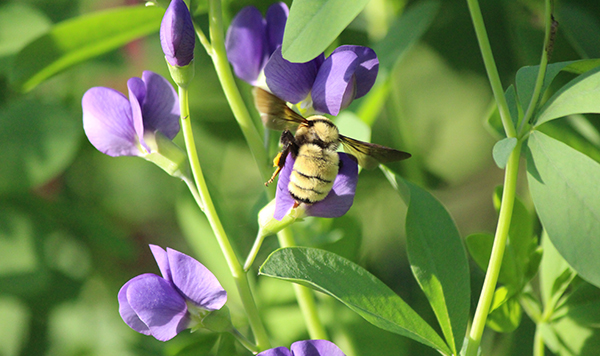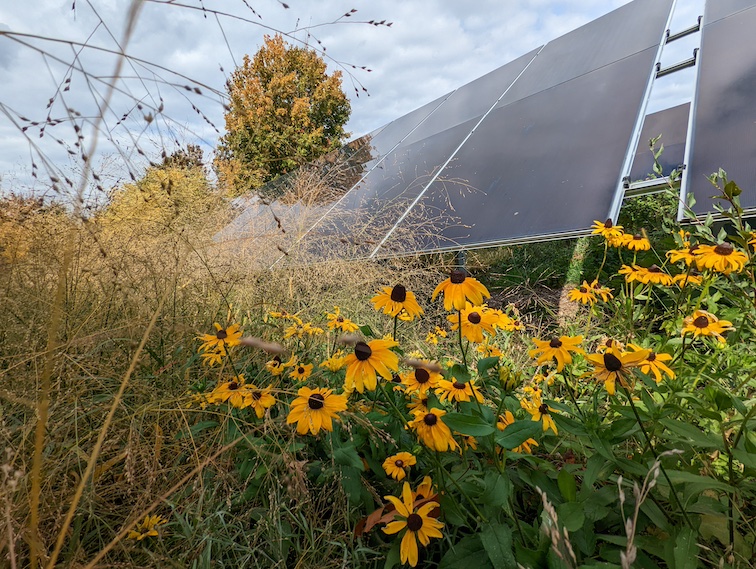
Pollinator Friendly Campus

In early 2019, JMU became the 66th college/university to become a Bee Campus USA affiliate. Bee Campus USA fosters ongoing dialogue to raise awareness of the role that native pollinators play in our communities and what individuals can do to provide pollinators with healthy habitat.
Thinking globally and acting locally, Bee Campus USA provides a framework for campus communities to work together to conserve native pollinators by increasing the abundance of native plants, providing nest sites, and reducing the use of pesticides.
Bee Campus USA affiliates make commitments to conserve native pollinators. Students, faculty, administrators, and staff work together to carry out these commitments and make their campus a better place for pollinators.
JMU is a Bee Campus, USA and the City of Harrisonburg is a Bee City, USA. Learn what this means from the Xerces Society, which organizes the Bee Campus and Bee City efforts, in the following video.
Bee Campus USA is a collaborative university-wide effort organized by FM and the ISNW, and accomplished through joint efforts with students, staff, faculty and partners.
Efforts to Support Pollinators on Campus

Photo by Dr. Amy Goodall

JMU is the first university in the state to earn a Virginia Pollinator-Smart Program Certification from the Virginia Department of Conservation and Recreation and the Department of Environmental Quality. The East Campus Hillside, located below King Hall, features the expanded solar array and native pollinator habitat that were included in the certification.
Native species suggested by faculty were planted along with shade tolerant plants that were particularly beneficial to pollinators. Bird houses, native bee-nest shelters, and educational signs are installed on the fence surrounding the array. The site is now not only fit to provide solar energy to King Hall, but also to provide a native pollinator habitat with the goal of establishing a long-term, environmentally sustainable, and educational landscape. Learn more.
